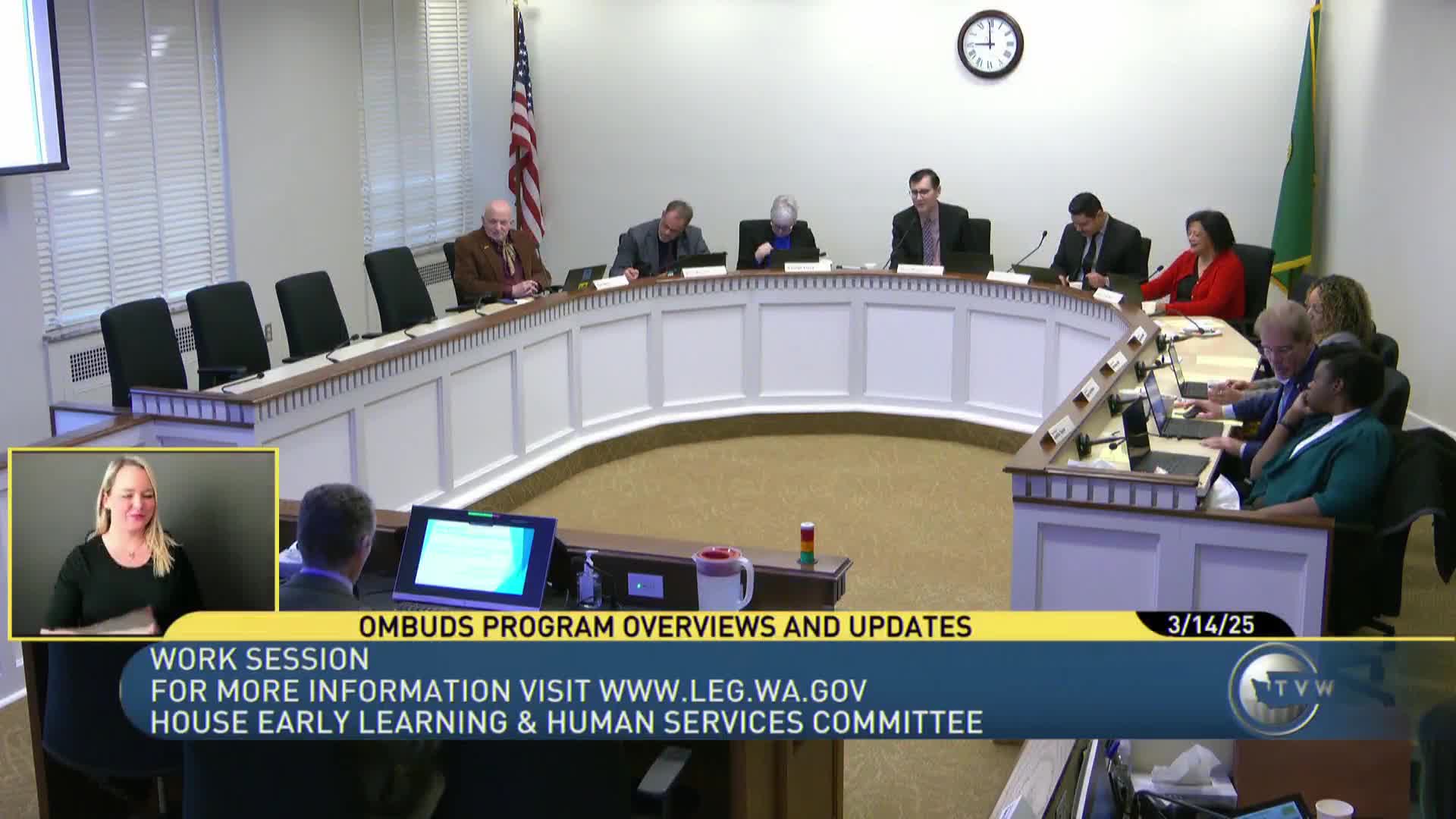Article not found
This article is no longer available. But don't worry—we've gathered other articles that discuss the same topic.
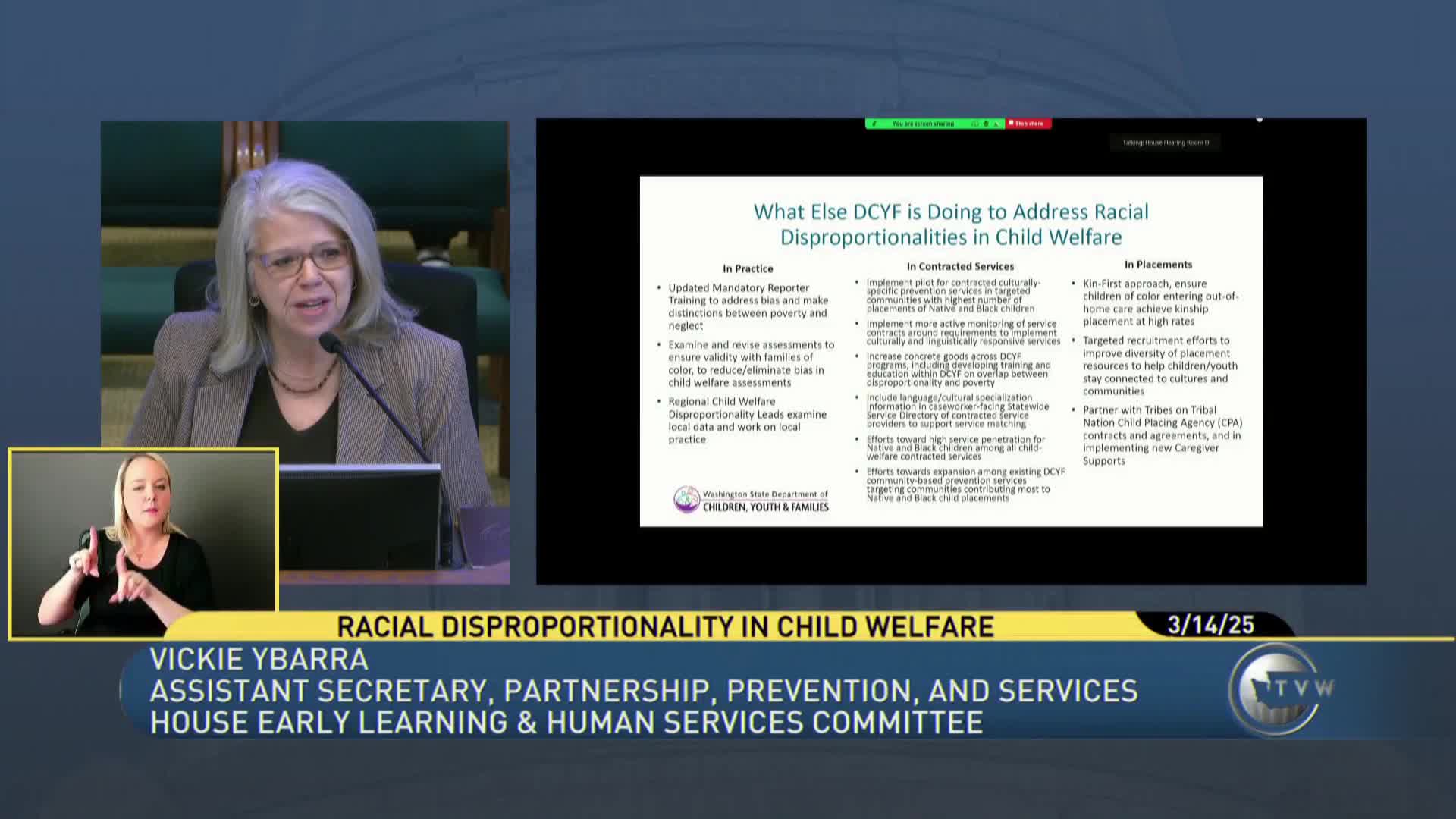
Panel hears bill letting DSHS waive efforts to collect some unintentional overpayments to older adults and people with disabilities
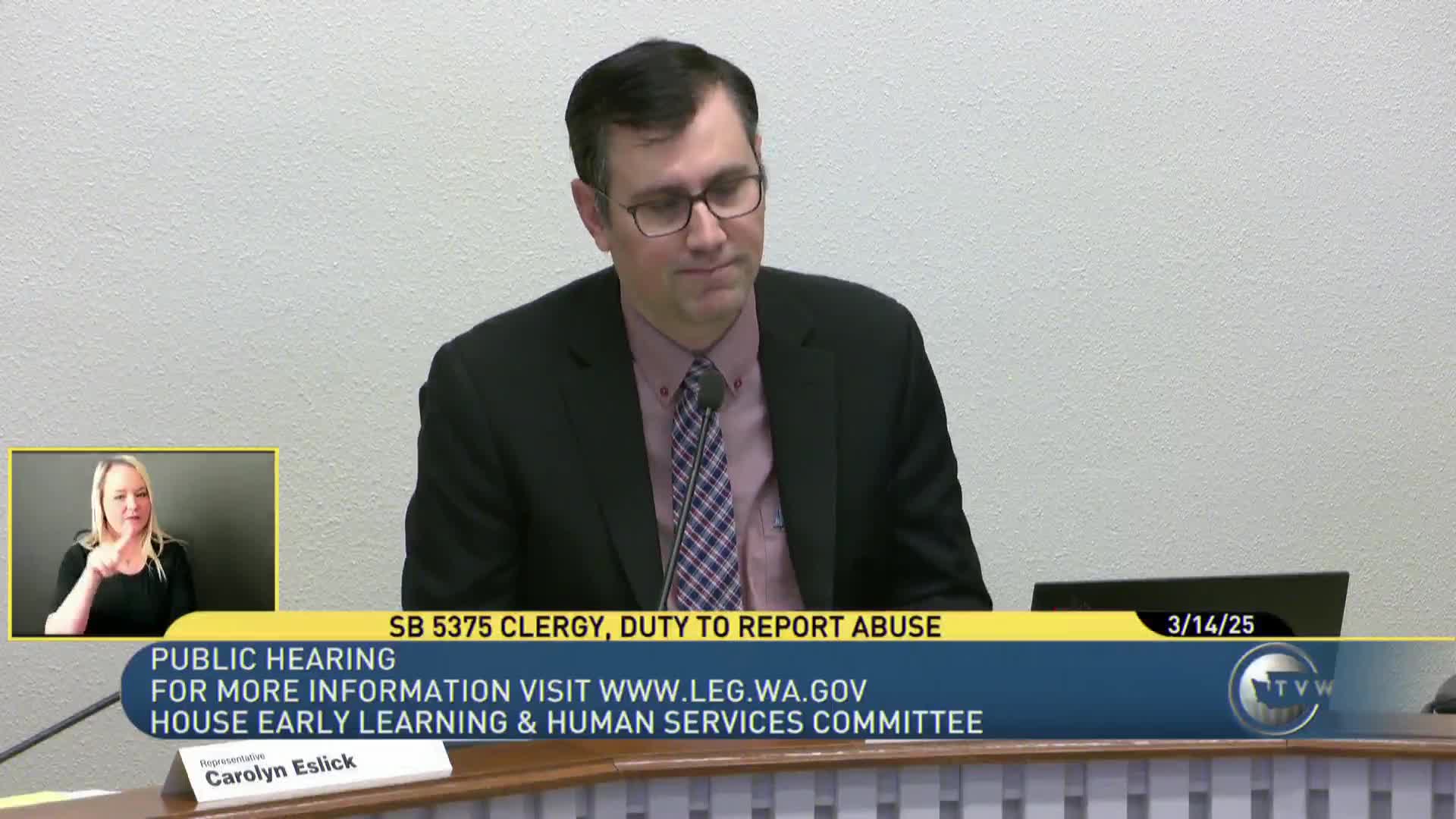
Committee takes testimony on bill to make clergy mandatory reporters; sharp split over confessional exemption
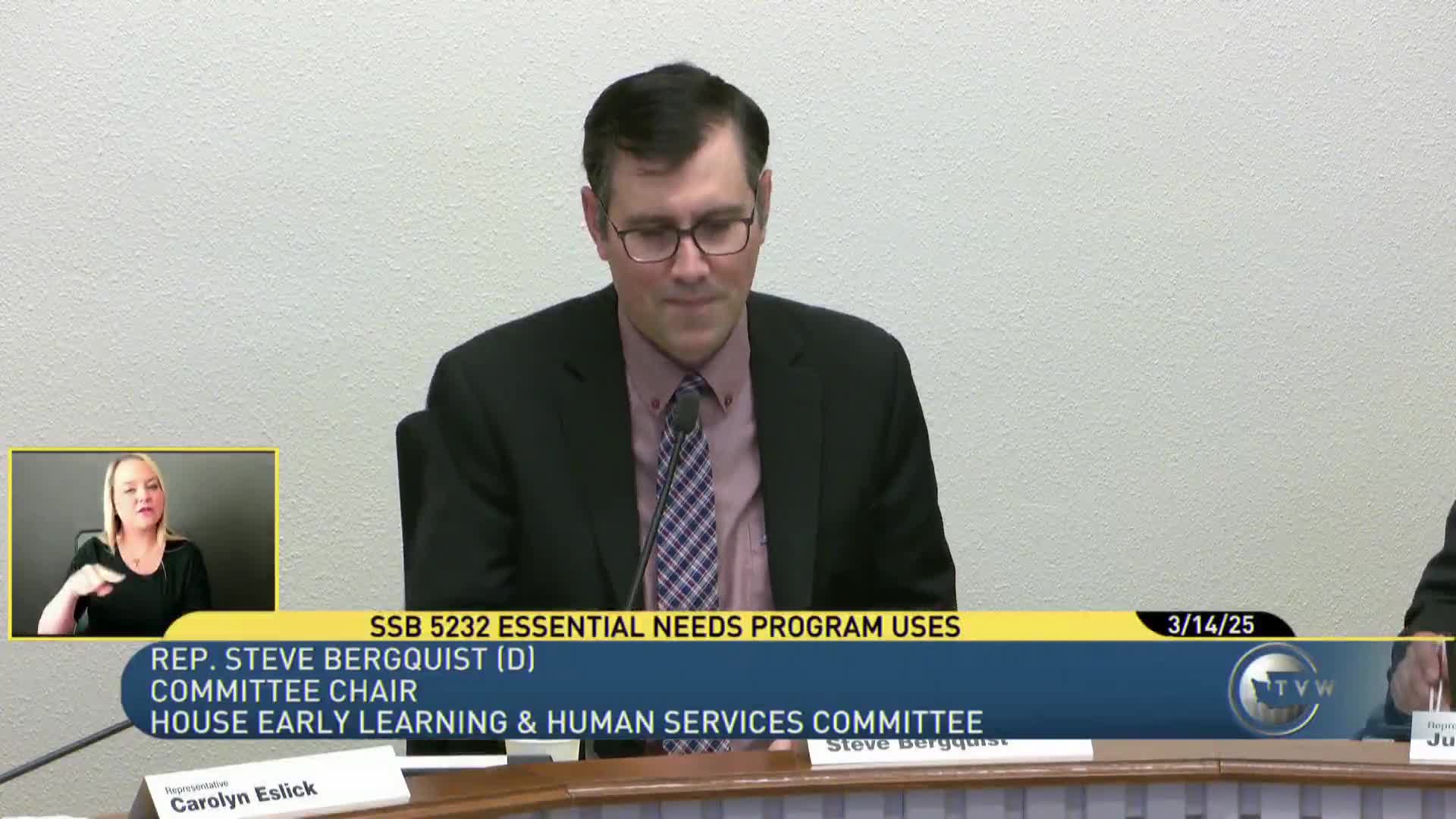
Committee hears bill to expand HEN housing aid, allow limited cash assistance and extend recertification
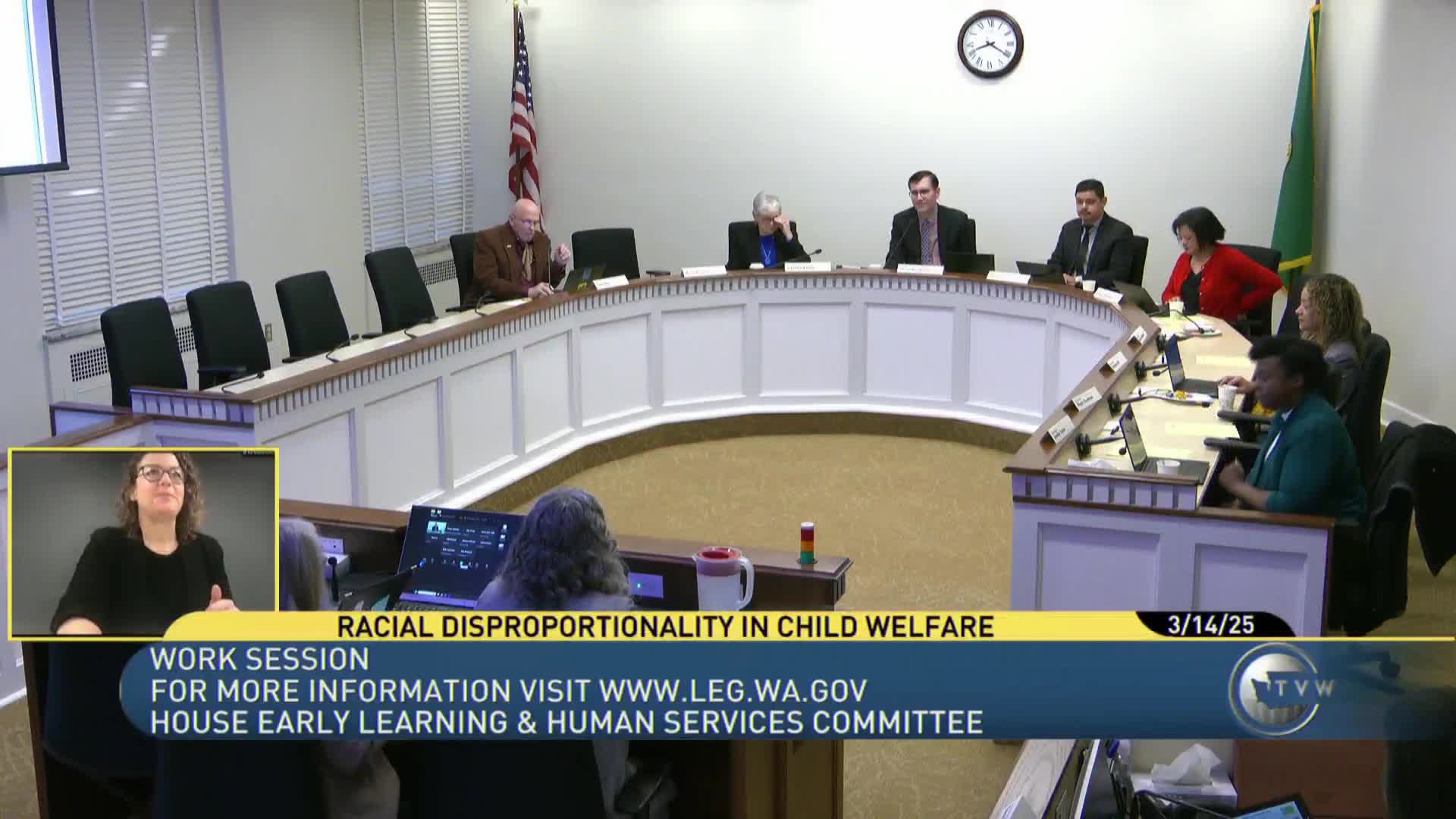
DCYF presents data and pilots aimed at reducing racial disproportionality in child welfare
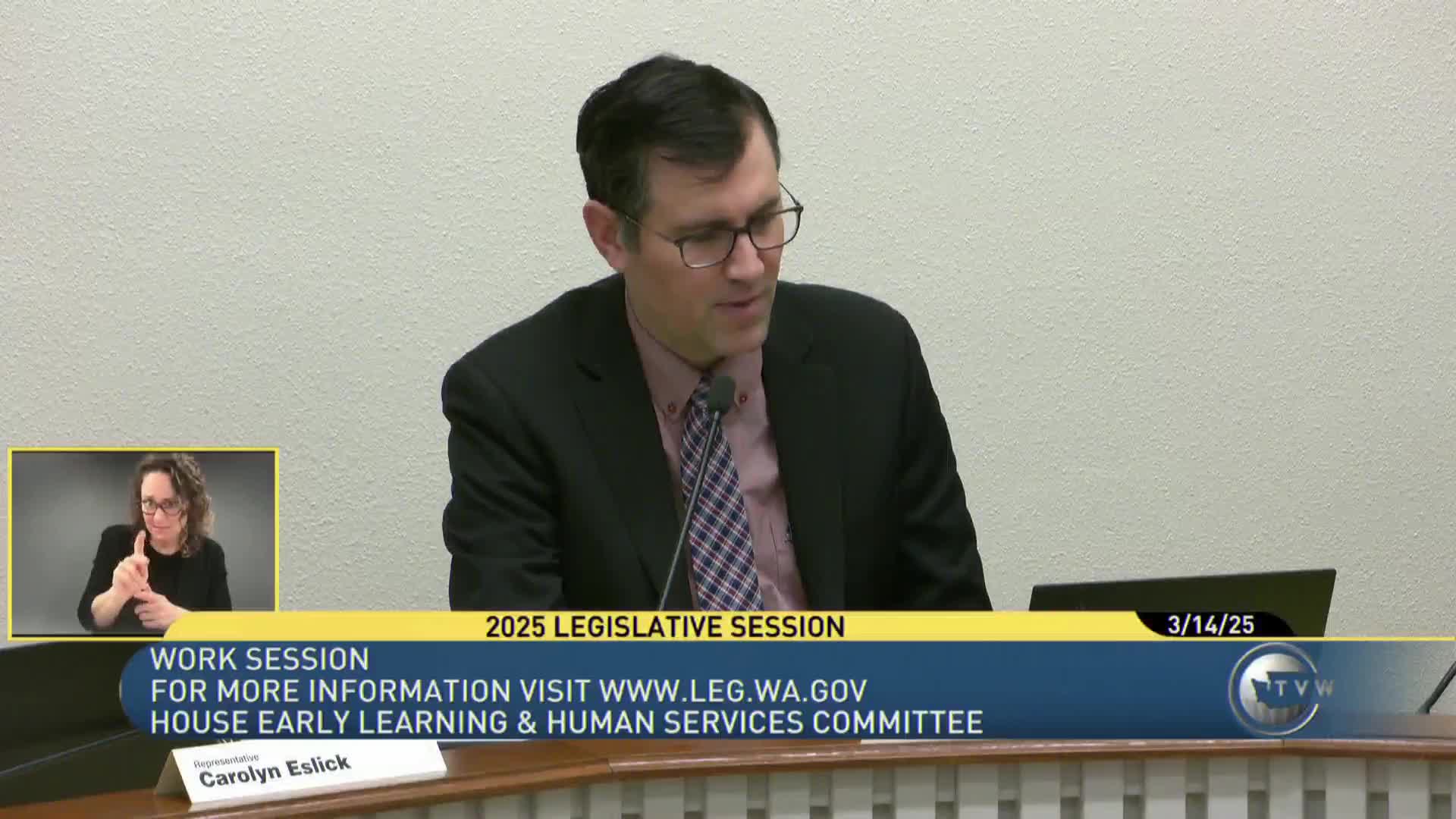
Developmental Disabilities Ombuds reports on access, hospital 'stuck' cases and calls for improved reporting pathways
